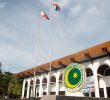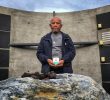(Conclusion)
If the extrajudicial executions and forced disappearances are indeed part of state policy and the government�s counterinsurgency program, it is then impossible for victims and their relatives to obtain justice under the current dispensation.
By DABET CASTANEDA and ALEXANDER MARTIN REMOLLINO
Bulatlat
Despite two investigation bodies � the PNP�s Task Force Usig and the Melo Commission – formed by President Gloria Macapagal-Arroyo to investigate allegations of extra-judicial killings and other human rights violations, families of victims and human rights groups who have taken up the cases generally remain skeptical. Police investigators and military authorities have insinuated that some of them have connections with the underground Left while the commission headed by a Supreme Court (SC) ex-justice has berated them for �non-cooperation.�
The victims� families, organized under Hustisya, and human rights watchdogs have reasons to be skeptical – mainly, that the investigations seem to have already been prejudged and that the investigation bodies were only out to clear the names of both the President and her security forces from any accountability.
Likewise, families of victims have had frustrations with police and NBI authorities whose investigations failed to pursue any leads, or simply dismissed many cases as common crimes or an offshoot of internal conflicts. There were not a few instances when police probers said they could not dig into cases that were �military operations.�
In its report to the Melo Commission on Sept. 7, 2006, task force head Police Deputy Director General Avelino Razon testified that they have recorded �111 party list militant members� killed from January 2001 to Aug. 31, 2006. He also said, however, that soldiers were implicated in only five cases of political killings.
The Melo Commission, formed on Aug. 21, 2006 and headed by retired Supreme Court Justice Jose A. R. Melo, is widely perceived to lack credibility and has yet to complete its investigation at this writing. Its problem of credibility stems from the former justice�s association with the Macapagal-Arroyo family and the fact that two of its members, Chief State Prosecutor Jovencio Zuno and Nestor Mataring, Director of the National Bureau of Investigation, are from the Department of Justice (DoJ) whose secretary, Raul Gonzalez, had dismissed the killings as a �collateral damage.� The other member, Nelia Teodoro-Gonzales, a Regent of the University of the Philippines, is also said to be close to the President.
Recommend
To top it all, while survivors and families of victims of the politically-motivated cases were expecting heads to roll with the formation of the Melo Commission, all that former Justice Melo could assure the families of victims is that it would �recommend appropriate prosecution and legislative proposals�(leading to) eradicating the root cases of extra-judicial killings.�
In its first hearing, the Melo Commission had Deputy Director General Razon and AFP officials including former General Palparan as the first witnesses. The same witnesses took turns lumping Bayan Muna and other organizations, from which several of those killed or reported missing came from, with the CPP-NPA.










